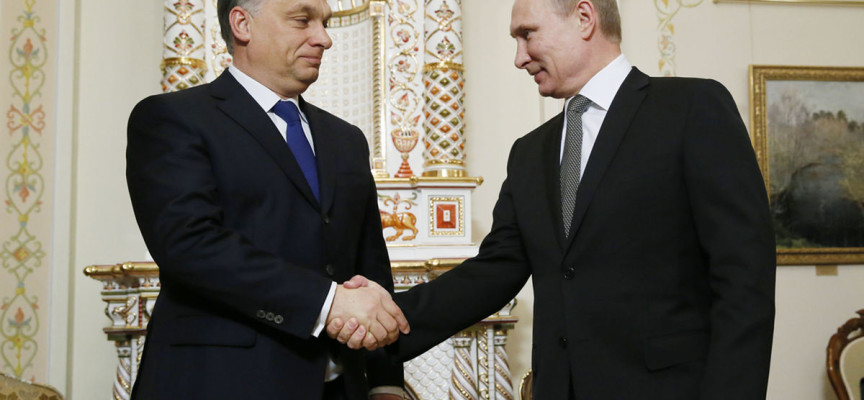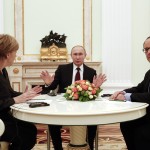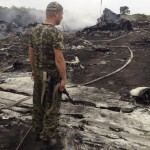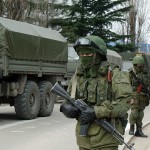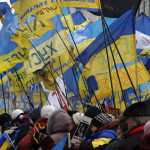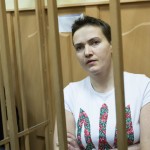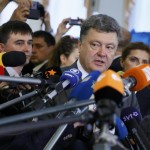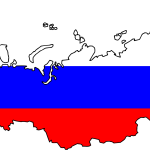The cease-fire in Ukraine is notoriously broken by the separatists and Russia, but everybody turns the blind eye. Mr Putin can easily afford it, because he has many friends in the European Union.
Since the Minsk-brokered cease-fire entered into force on Feb.15th, the separatists and their Russian allies have conquered Debaltseve. The siege ended with a bloodbath. The Russian- Ukrainian border, where the OCSE observers haven’t yet been permitted to go, was crossed by at least one hundred Russian tanks and rocket launchers. At the moment the separatists attack Mariupol in order to open the land corridor between Russia and Crimea. Since the “Minsk 2” treaty was signed (Feb.12th), over one thousand people have died in the Ukrainian war. This is almost one fifth of all fatalities of the 10-month long conflict! But nobody except the Ukrainians and the US. sounds the alarm. The EU accepts this aberrant “Pax Putinae”.
President Putin knew he could easily get away with it, because he can bank on the support of his friends within the EU. On Feb.17th the Hungarian prime minister Victor Orban received Mr Putin with all honours in Budapest and sharply criticised “these EU countries which attempt to isolate Russia and impose sanctions harmful for everybody”. He even called the president of the European Council Donald Tusk (former Polish prime minister) the main promoter of this policy with a clear reference to the supposed Polish russophobia. Orban stated that Hungary as well as many other countries within the EU consider the come back to the full cooperation with Russia a very urgent necessity. In the most heinous episode of the visit Mr Putin laid a wreath of flowers in the Budapest cemetery of the Soviet soldiers who fell while brutally putting down the Hungarian Uprising of 1956 r. against the Moscow’s rule. In the context of the Ukrainian war this provocative gesture of Putin takes a more symbolic and sinister meaning.
Not only Mr Orban, but also the authorities of the Czech Republic, Slovakia, Austria and Cyprus would gladly sacrifice the whole Ukraine on the altar of future smooth business with Mr Putin. The EU locomotives – Germany and France – are not so generous, but practically have already accepted the annexation of Crimea aa well as the Russian policy of accomplished facts in Eastern Ukraine. In Italy not only the right-wing opposition also wants to sacrifice Ukraine and hopes that besides the improvement of the Italian-Russian trade exchange, it will help to turn Russia into an ally in the future war with the Islamic State. The Italian prime minister Matteo Renzi will go to Moscow in March to discuss with Putin the situation in Libya. Renzi tweets 20 times a day and gives at least five interviews, but keeps silent about the Ukrainian war.
On Feb.18th, the day of the Debaltseve bloodbath, the main evening edition of the public tv RAI news, which is for the Italians the main source of information of what is going on in Italy and abroad, did not even mention Ukraine. Neither in the RAI 1 nor in the RAI 2 editions. The most important Italian newspaper “Corriere della Sera” on Feb.19th devoted to Ukraine a quarter of it’s page number 25. Is this only the evidence of journalistic incompetence or idiocy on the part of so eloquent and sophisticated Italian press? It’s hard to believe.
As it turned out, the news from Ukraine has also troubles to penetrate the Vatican walls. Archbishop of Lviv Mieczysław Mokrzycki (former secretary of John Paul II and Benedict XVI) after the encounter with Francis on Feb.21st told the Vatican Radio that the pope had been completely unaware of the true situation in Eastern Ukraine and Russia’s role in the conflict.
La tregua in Ucraina è continuamente violata dai separatisti e dalla Russia ma tutti chiudono un occhio. La Russia, con gli amici che ha nell’Unione Europea, se lo può permettere.
Dal 15 febbraio, data dell’entrata in vigore del cessate il fuoco, i separatisti, e con loro numerosi militari russi, hanno attaccato e in 3 giorni conquistato la città di Debalcevo, annegandola in un mare di sangue. La frontiera tra la Russia e l’Ucraina, dove non sono ammessi gli osservatori dell’OSCE, è stata varcata da un centinaio di carri armati russi e da numerosi lanciamissili. Adesso i separatisti assediano Mariupol per aprire un corridoio con la Crimea. Dopo la firma dell’accordo “Minsk 2”, il 12 febbraio scorso, nell’Ucraina sud orientale oltre mille persone hanno perso la vita. È il 20% di tutte le vittime dei 10 mesi di guerra civile ucraina scatenata dalla Russia. Nessuno però suona l’allarme. Anche l’UE accetta quella curiosa “pax putiniana”.
Putin sapeva che l’avrebbe passata liscia, visti i suoi molti amici nell’Unione. Il 17 febbraio il primo ministro ungherese Victor Orban lo ha ricevuto con tutti gli onori a Budapest. Successivamente ha criticato quei paesi dell’UE che tentano per mezzo delle sanzioni economiche d’isolare la Russia. Orban ha indicato il presidente del Consiglio europeo, il polacco Donald Tusk, come principale promotore di quella linea politica. Ha affermato inoltre che l’Ungheria considera necessaria la cooperazione con la Russia. Il momento più vergognoso della vista di Putin in Ungheria è stato quando ha reso omaggio e deposto dei fiori al cimitero dove sono tumulate le salme dei soldati sovietici che avevano perso la vita nel 1956, cercando di soffocare la rivolta popolare degli ungheresi contro l’URSS. Nel contesto della guerra in Ucraina il gesto provocatorio di Putin assume un cupo valore simbolico.
Oltre a Victor Orban, anche i governi di Repubblica Ceca, Slovacchia, Austria e Cipro avrebbero dato volentieri l’Ucraina in pasto a Putin per poter continuare indisturbati a fare affari con la Russia. Le due locomotive dell’Unione, la Germania e la Francia, non sono così generose, ma in pratica hanno già accettato l’annessione da parte della Russia della Crimea e dell’Est Ucraina. In Italia non è solo l’opposizione di destra ad affermare che bisogna dimenticare l’Ucraina, togliere tutte le sanzioni alla Russia e attaccare insieme lo Stato islamico. Lo stesso premier Matteo Renzi, a marzo, si recherà a Mosca per discutere con Putin la situazione in Libia. Renzi, nonostante faccia venti tweet e rilasci cinque interviste al giorno, in merito alla guerra in Ucraina non si esprime. Gli italiani, in genere, la guerra in Ucraina non la considerano affatto.
Sempre in Italia il 18 febbraio, mentre i separatisti organizzavano la mattanza a Debalcevo, l’edizione principale dei telegiornali Rai, che – come dimostrano i sondaggi – sono la fonte principale delle notizie per gli italiani, non ne spendono nemmeno una parola, mentre il principale giornale italiano, “Corriere della Sera”, ne parla in poche righe a pagina 25. È difficile non sospettare che si tratti di una politica dell’informazione piuttosto che non dell’incompetenza dei giornalisti.
Dalle ultime notizie risulta che con la stessa difficoltà le informazioni sulla situazione in Ucraina arrivano in Vaticano. L’arcivescovo di Leopoli dei latini, monsignor Mieczyslaw Mokrzycki, dopo l’udienza concessa dal Pontefice di recente ha detto alla Radio Vaticana che papa Francesco non si rendeva conto della reale situazione in Ucraina e tanto meno del ruolo della Russia in quel conflitto.
Wszyscy ludzie prezydenta (Putina)
Na Ukrainie warunki rozejmu są ustawicznie łamane przez separatystów i Rosję, na co wszyscy przymykają oko. Ale Rosja może sobie na to pozwolić, bo ma w Unii Europejskiej wielu przyjaciół.
Od wejścia w życie 15 lutego zawieszenia broni separatyści, w tym wielu rosyjskich żołnierzy, zaatakowali i 3 dni później zdobyli Debalcewe topiąc miasto w morzu krwi. Granicę z Ukrainą, gdzie nie dopuszczono obserwatorów OBWE, przekroczyło blisko setka rosyjskich czołgów i wyrzutni rakietowych. Teraz separatyści atakują Mariupol, by otworzyć korytarz lądowy z Krymem. W sumie od podpisania traktatu „Mińsk 2” 12.02 na wschodniej Ukrainie zginęło ponad tysiąc osób, a więc aż 20 procent wszystkich ofiar rozpętanej przez Rosję i trwającej od 10 miesięcy wojny domowej! Ale nikt nie bije na alarm. Również Unia akceptuje tę kuriozalną „Pax Putinae”.
Putin wiedział, że ujdzie mu to sucho, bo ma w Unii wielu przyjaciół. 17 lutego premier Węgier Victor Orban przyjął go z honorami w Budapeszcie, a potem skrytykował te kraje Unii Europejskiej, które próbują sankcjami izolować Rosję. Jako promotora tej polityki Orban wymienił szefa Rady Europejskiej Donalda Tuska. Stwierdził, że Węgryuważają współpracę z Moskwą za konieczną. Najbardziej haniebnym epizodem wizyty było złożenie przez Putina kwiatów na cmentarzu, gdzie pochowano sowieckich żołnierzy, którzy polegli w 1956 r. krwawo tłumiąc powstanie narodowe Węgrów przeciw sowieckiej satrapii. W kontekście wojny na Ukrainie prowokacyjny gest Putina nabiera symbolicznego, ponurego znaczenia.
Oprócz Orbana również rządy Czech, Słowacji, Austrii i Cypru rzuciłyby chętnie Putinowi Ukrainę na pożarcie, byle tylko nadal bez przeszkód prowadzić biznes z Rosją. Lokomotywy Unii – Niemcy i Francja – tak szczodre nie są, ale na zabór Krymu i wschodniej Ukrainy już się praktycznie zgodziły. W Italii nie tylko prawicowa opozycja powiada, że trzeba zapomnieć o Ukrainie, zdjąć z Rosji wszelkie sankcje i ruszyć z nią wspólnie na wojnę z Państwem Islamskim. Premier Matteo Renzi w marcu uda się do Moskwy, by przedyskutować z Putinem sytuację w Libii. Renzi, choć twittuje 20 razy i udziela 5 wywiadów dziennie, w sprawie wojny na Ukrainie nie wypowiada się wcale. Generalnie Włosi nie przyjmują wojny na Ukrainie do wiadomości.
18 lutego, gdy separatyści urządzili krwawą rzeź w Debalcewe, główne wydanie dziennika telewizji publicznej RAI, jak wskazują badania, głównego źródła wiedzy Włochów o tym, co się dzieje w świecie, nie zająknęło się o tym ani słowem. Podobnie było dnia następnego. Prawicowe dzienniki „Il Giornale” i „Libero” też wojnę na Ukrainie przed czytelnikami ukryły, a „Corriere della Sera”, najważniejszy dziennik Włoch, poświęcił jej kilkanaście zdań na 25 stronie. Trudno uniknąć podejrzeń, że to bardziej polityka informacyjna niż efekt dziennikarskiej niekompetencji.
Jak się okazało, równie ciężko informacje z Ukrainy przebijają się do Watykanu. Abp Lwowa Mieczysław Mokrzycki po spotkaniu z papieżem powiedział Radiu Watykańskiemu, że Franciszek nie zdawał sobie sprawy z tego, co się dzieje na Ukrainie, ani z tego, jaką rolę odgrywa w tym konflikcie Rosja.
Piotr Kowalczuk
Latest posts by Piotr Kowalczuk (see all)
- Pulitzer for a “subtle lie” - 14 maggio 2016
- Casus Savchenko: a symbol for Russia and Ukraine - 3 aprile 2016
- Lech Wałęsa, the victim of history and of his own - 23 febbraio 2016

